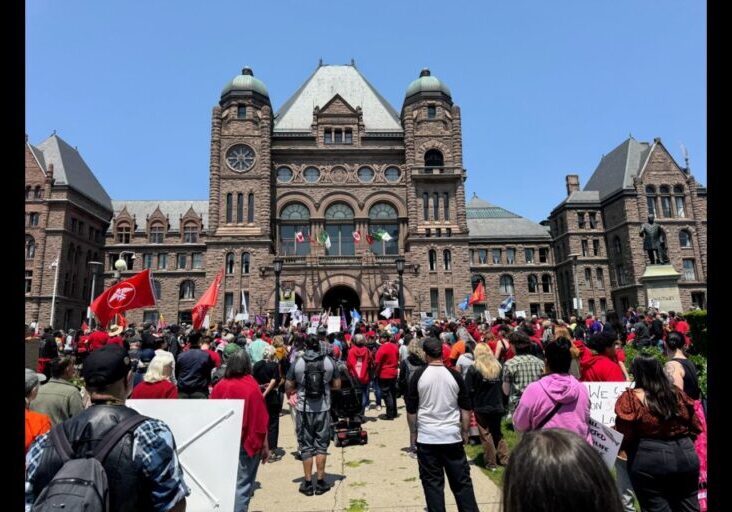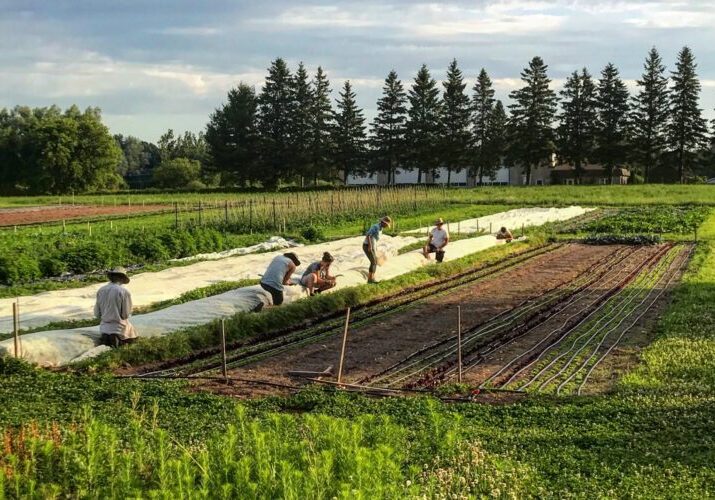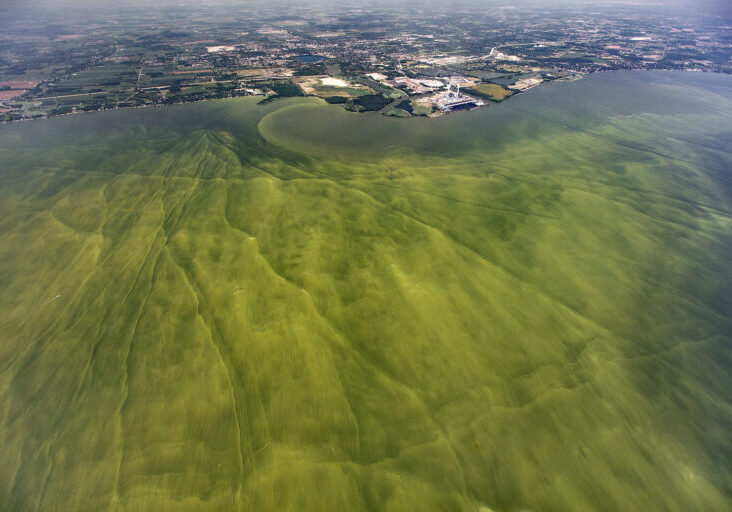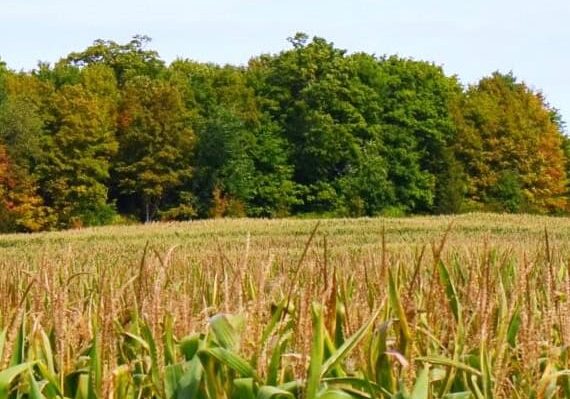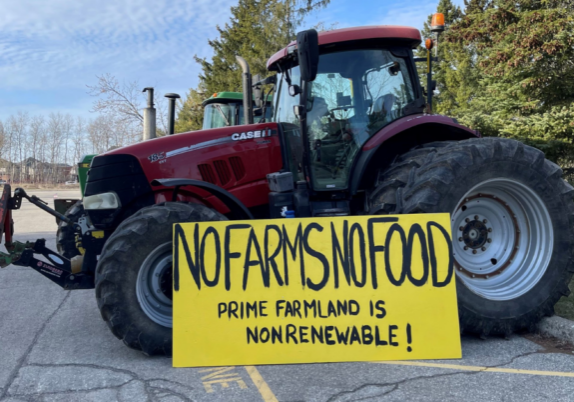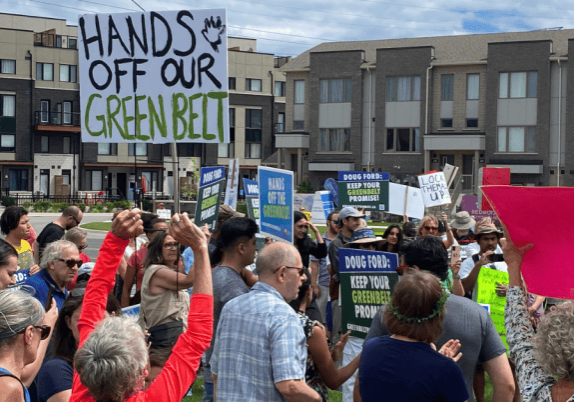Media Release: Waterloo Region Plows Under Crops While Fields Burn Out West
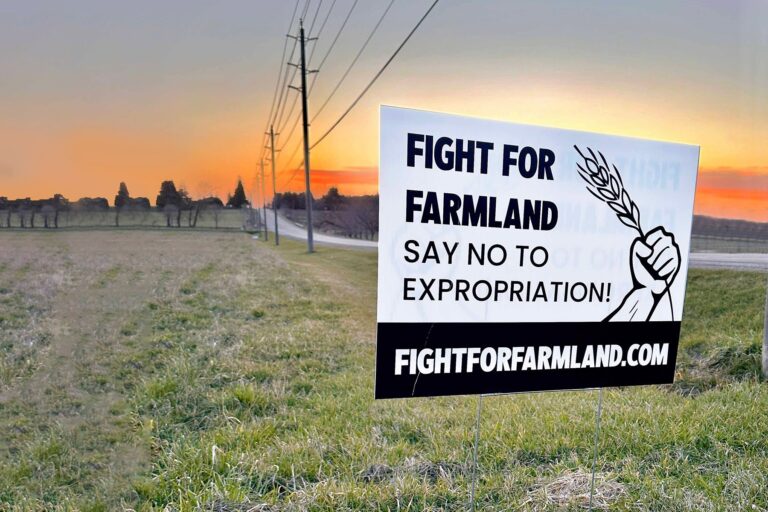
July 29, 2024
Treaty lands and territory of the Mississaugas of the Credit (Guelph, ON) – On July 24th, 160 acres of corn, intended for animal silage, in Wilmot Township were ploughed under and wasted, while farm fields burn uncontrollably across western Canada. Clearly, our decision makers do not understand the problem with this picture.
The Region of Waterloo has always been a leader of good land use planning by balancing sustainable growth and protecting agricultural land within their Countryside Line. Now, while the average family struggles to put good food on their table, the Region is using taxpayers’ dollars to plough under crops. This is not sustainable or wise land use planning.
This recent attack on farmland is part of a larger land assembly plan that will see 770 acres of prime farmland permanently taken out of production in a bid to entice future industrial development in the Township. The impact will not stop there. Approved changes to the Region’s official plans have expanded the Countryside Line for Baden and New Hamburg to support over 700 acres of adjacent development – including road expansions, sprawl, and additional industrial activities. With zero public consultation, this land grab will threaten thousands of additional acres of farmland and natural heritage areas.
Residents of Wilmot Township and Waterloo Region have a democratic right to public consultation, and to know what kind of land developments and infrastructure their elected officials are pursuing within their constituency. Anything less begs the question of whether elected officials are acting in good faith and within their sworn oath.
The members of the National Farmers Union – Ontario (NFU-O) are growing more concerned every day with the number of battles across the province where farmland is being rezoned or removed to make way for speculative developments that have not been proven to be of benefit to Ontarians.
“Housing and economic development that are in the public’s interest are necessary and important. But, if we continue to eat away, parcel by parcel, at our irreplaceable farmland and pave it over for other uses, we will be faced with a grim future: one with more volatile weather extremes and where food production near our cities, and across our province, will no longer be viable,” states Max Hansgen, NFU-O President. “The next generation of farmers faces a more uncertain future than any generation before it.”
It is time for collective action. We need regional, provincial, and federal agricultural strategies that protect the key resource needed to grow food and feed Ontarians – farmland. “These strategies must be connected, comprehensive, and cross-sectoral,” adds Jenn Pfenning, NFU President. “They must include local food supply in order to effectively ensure food security.”
The rich soils that make up our productive agricultural landscape in Ontario have taken tens of thousands of years to form, and once these soils are lost, we lose the ability to grow food and feed ourselves.
“We need to look no further than the Senate committee’s new report, Critical Ground: Why soil is essential to Canada’s economic, environmental, human and social health, to learn that extreme climate events, contamination, urbanization and erosion are all contributing to soil degradation and threatening food sovereignty, livelihoods and the environment,” shares Max Hansgen, NFU-O President.
The Senate report also states that “to protect and conserve farmland soil throughout Canada, all levels of government—federal, provincial, territorial, municipal—should work together to plan agriculture into, and not out of, communities”.
Yet, the Region of Waterloo is removing 770 acres of prime agricultural soils from production and disrupting the livelihoods of farm families who have been growing food in their community for generations. “It is these short-sighted decisions that are putting farmers, agricultural soils and rural communities in a precarious position for the future,” adds Max Hansgen.
The NFU-O calls on the Region of Waterloo to return to proper land use planning processes, halt this misguided land assembly, and work with local farmers, concerned citizens and members of the Fight for Farmland coalition, the Grand River Conservation Authority, and community groups like the Grand River Environmental Network, to find a better solution, one that respects the community’s voice and puts the land and the community above private profit.
The NFU-O also calls on the province, the Region of Waterloo, and other municipalities across Ontario facing development pressures to come to the table with farm organizations and farmers to develop an agricultural strategy that will ensure a future where farmland and agricultural soils are valued and permanently protected to feed a healthy, growing population.
-30-
For more information:
Max Hansgen,
President, National Farmers Union–Ontario
president@nfuontario.ca, 613-464-1251
